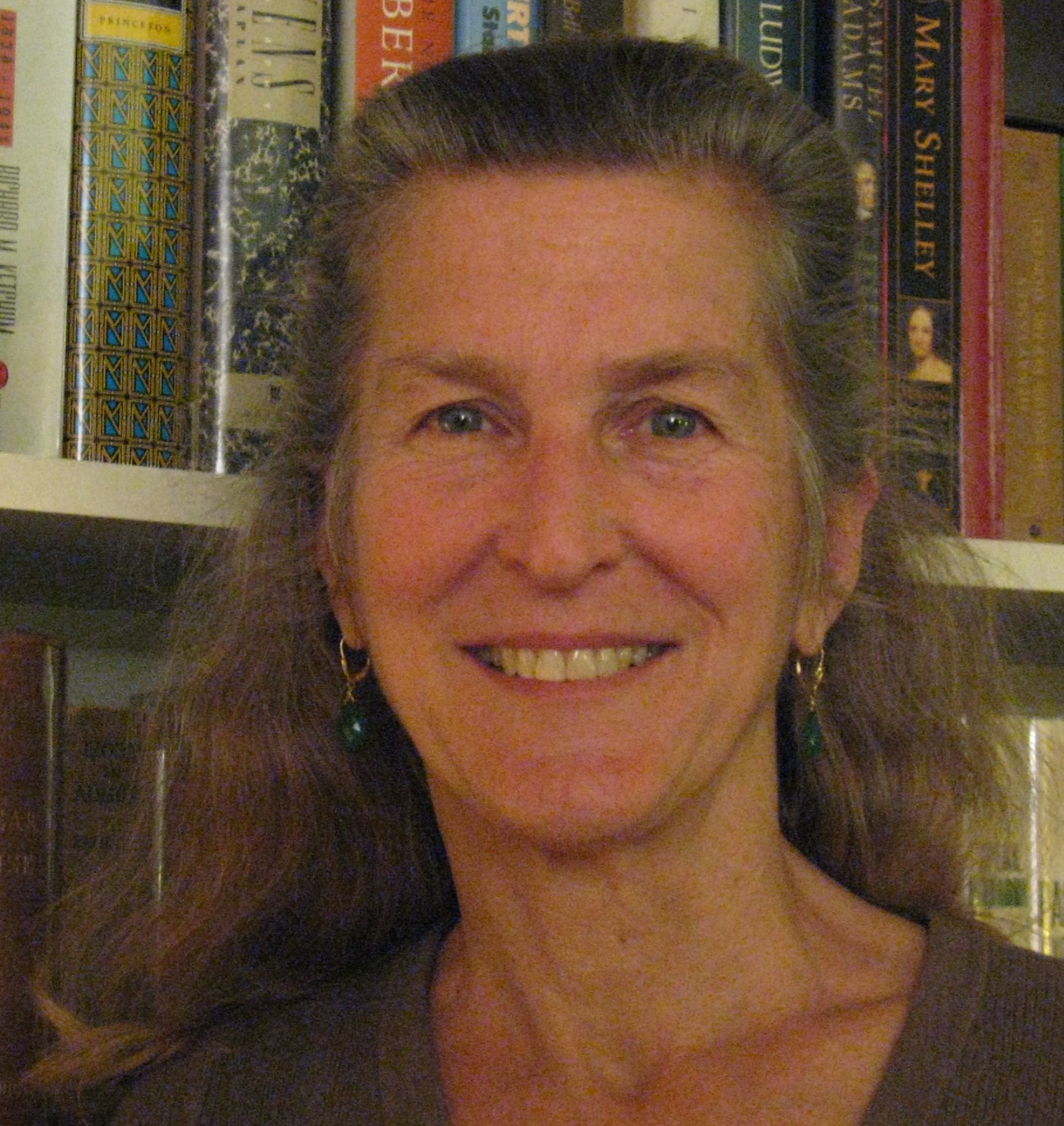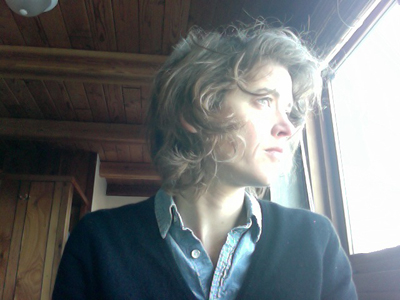Interviews
To Convert that Terrible Fact into Beauty: Allison Blythe in Conversation with Maggie Schwed
 Maggie Schwed talks with Malahat volunteer Allison Blythe about "The Constant Gardener" (#175, Summer 2011), winner of the 2011 Malahat Review Long Poem Prize
Maggie Schwed talks with Malahat volunteer Allison Blythe about "The Constant Gardener" (#175, Summer 2011), winner of the 2011 Malahat Review Long Poem PrizeWhere, physically, did you write this poem from?
I work very much out loud, moving back and forth between my computer screen where I see the lines growing, and my voice, getting the words to fit my breath, my thought, my ear. Of course, it was a period of great sadness that lasted for a couple of years, so perhaps some of it was located in the eyes (tears; the effort to see with clarity what was happening) and a lot in my throat (the voice). Because my father was dying, I was trying to convert that terrible fact into beauty.
My mom kept reading bits of your poem out loud to me, saying, "Listen to this...." To achieve full participation in, or to fully experience this poem, it begs to be read aloud.
I do like your sense that the poem begs to be read aloud, though perhaps I always feel this is the case. Some people, though, do not like to read aloud, or be read to: they prefer to hear it internally. I think that pronouncing the words yourself adds to the experience—reading aloud helps you see how the poet is pushing you to the poem’s own rhythms, tempos, syntax, silences, gaps.
There are some places in “The Constant Gardener” where the rhythms are laid out playfully—like with the one-two-three of a waltz in the later part of section VII.
While I was writing the poem, I was aware of wanting significant shifts of timing and mode of expression between sections—also to swing the movement back and forth between the archaic world of The Odyssey, and the contemporary world of gardens, hospitals, etc.
The father in this poem is lauded, adored. You both elevate him to myth and level him with the dirt. Tell me about choosing to explore the father through the story of King Laertes.
The Odyssey is a book I have always loved and at that time had taught for several years, giving me a layered appreciation of some of the subtler bits—like the part in which Odysseus returns to Ithaca after 20 years, learns his father, the king, has abandoned his palace and now lives like a beggar in his orchard.
Odysseus finds the old man there, transformed by grief, but does not disclose his own identity until he toughens the old man with taunts—perhaps so that Laertes can survive the shock of having his son returned to him, perhaps (a dark thought) to test his own father’s loyalty.
Something about the old king being a humble gardener (as a way to transform, or at least endure, his sorrow) struck me as having associations with my father who was an ardent (if feckless) gardener. That is to say, he dug up considerable portions of the lawn, grew tomatoes and beans and lettuces, and pestered the neighbours with gifts of imperfect vegetables. His ardour for digging never left him. Planting is an act of good faith. You’re aiming for harvest, for the next season.
As a kind of joke with myself, I exploited his middle name: King.
I think Laertes wanted nothing but what was real, nothing but what his own two hands could bring him. Kingship meant nothing once Odysseus was not coming home. He’s almost like Lear—an unaccommodated man. And then, once he can believe in his good fortune, he flourishes again, becomes a warrior again, however briefly. Parents and children have unique power for each other.
I could see my own parent finding ways to shake his fist defiantly. And death seems to bring up our problematic relationship with god/the gods. I find the humanity (and brutal inhumanity) of the Greek pantheon very interesting. The best life might be to go unnoticed by the gods; second best, to be the hero of a particularly powerful and wily god (but then you have to expect jealous retribution from one or another of them).
One way or another, death comes to us. I couldn’t help trying to think about it.
Images you use in this poem will stay with me forever—those spiders "folded up like deck chairs" and the rain "bursting bags of silver / over the gutters". But it was the deer, which enters the poem twice, that let me get even closer to the speaker’s grief and wonder over the father's death. I hate to even talk about it, in fear I'll bungle or diminish the way you showed us "so much of her bright body, so close".
I’m glad you like the deer. I did too. I’m often pushed into poetry by things I see and by experiences I have in nature. For the past five years I’ve been learning to farm, which has contributed many things to my recent work.
“The Constant Gardener” is a title I stole, of course, from John le Carré —who stole it from a poet. Long ago, I heard le Carré interviewed on the radio, where he commented on the excellence of the word “constant”—how it suggests faithful, unswerving, continual—and I thought, oh, that has to be my title, it belongs to my poem.
At that time, I was beginning to keep a garden of my own up in Putnam Valley, NY, where my husband and I had joined an old, rural Cooperative called Three Arrows, primarily as a way of allowing our children to be freer than they could be in the city, and for us all to strengthen our experience of living in community.
Deer were the enemy, but so beautiful. I’ve had many significant encounters with them, including finding that strand of still-moist grass, left by a doe. I suppose I don’t use much metaphor or simile (though you mention two instances!). Instinctively, I feel if I can bring the green world up close enough, it will show itself as full of meaning, implication.In this sequence of poems we never really stray from the work and joy of the garden. It gives the poem a kind of groundedness across a massive landscape of time, space, even mortality. Why this setting?
I didn’t expect to take up gardening—it was always the men in my family who had done it.
But there was the soil, there was the shovel, and before I could stop myself, I was making a garden and learning the surprise of what water, sun, and good dirt can do. And sweat. In my experience, certain physical kinds of work are a joy, especially outdoors, in all weather. You dress for it, you squat down to pull weeds, and there’s that spider.
I don’t know that I planned for the garden to give the groundedness you speak of. I’ve always been a little afraid the poem might not have had enough structure to justify the juxtapositions of ancient and modern.
The poem was written over several years in almost the order it appears now. Perhaps the garden is where I was getting the most sensory stimulus just then and it lent itself abundantly. But I appreciate very much what you say about it permitting movement “across a massive landscape of time, space, even mortality.” That was my hope, to get such a broad compass. I did get to share almost the whole poem with my father.
* * * * * * * * *

Allison Blythe
The Long Poem Prize runs in odd years, alternating with the Novella Prize (which runs even years). The next deadline for our Long Poem Prize is February 1, 2013.









